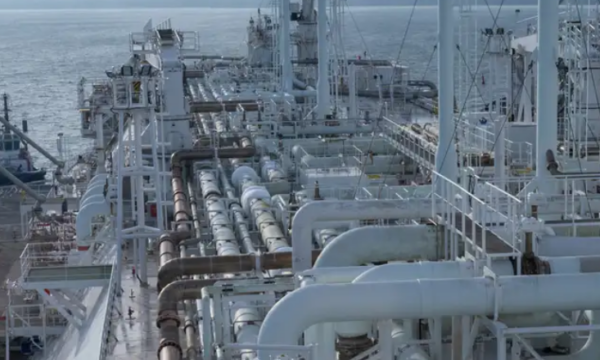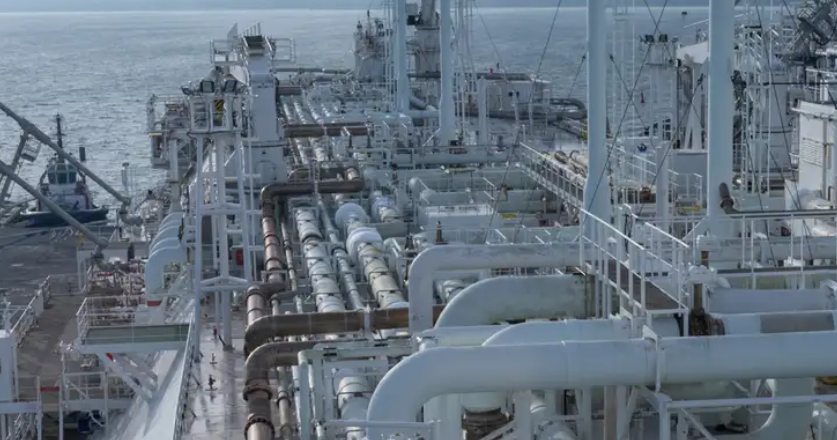EU to accelerate ban on Russian LNG imports

The EU is trying to increase pressure on Moscow: The ban on imports of Russian liquefied gas, according to a Commission proposal, should come into force sooner. The Commission is also proposing other sanctions against Russia.
The EU Commission has proposed toughening sanctions against Russia. The Commission also wants to speed up the implementation of a ban on imports of liquefied natural gas (LNG) from Russia. Russia is financing the war in Ukraine with revenues from the sale of fossil fuels, said Commission President Ursula von der Leyen. To put an end to this, it is time to turn off the tap, she said. According to the Commission, the ban should come into force as early as 2027, a year earlier than planned. After Russia’s attack on Ukraine, the EU decided to ban Russian coal and oil imports. By 2024, Russian natural gas imports into the EU accounted for 19 percent. This is partly due to the increase in LNG imports.
LNG is transported by ship and then converted from a liquid state to a gas off the coast of Europe, where it is stored in the relevant networks. LNG imports have offset the significant decline in gas imports via pipelines.
US pressure from President Donald Trump has increasingly encouraged EU countries to stop buying Russian oil and gas. Trump has also made further US sanctions on Russia conditional on this demand. During a phone call with von der Leyen this week, Trump also asked the EU to contribute more to ending Russia’s war in Ukraine. He is asking Europeans to cover a large part of the costs of supporting the Ukrainian army. After this phone call, von der Leyen said that she would accelerate the transition away from Russian oil and gas imports.
Other sanctions proposed Proposals for the new sanctions package are expected in the finance and trade sectors. The focus of the sanctions will be, among other things, on Russia’s camouflaged tanker fleet, cryptocurrencies, Russian and Central Asian banks, and Chinese refineries. The aim is also to close the space that Russia uses to import dual-use goods for its military. In the coming days, the proposals for the new sanctions will be discussed with representatives of the EU countries. In order for the decision on the sanctions to be made, all 27 member states must vote – only the ban on energy imports can be adopted by a majority.
A difficult voting process is expected again, especially because some countries like Hungary are critical of the new sanctions. The EU imposed its 18th package of sanctions against Russia in July this year. /DW/

